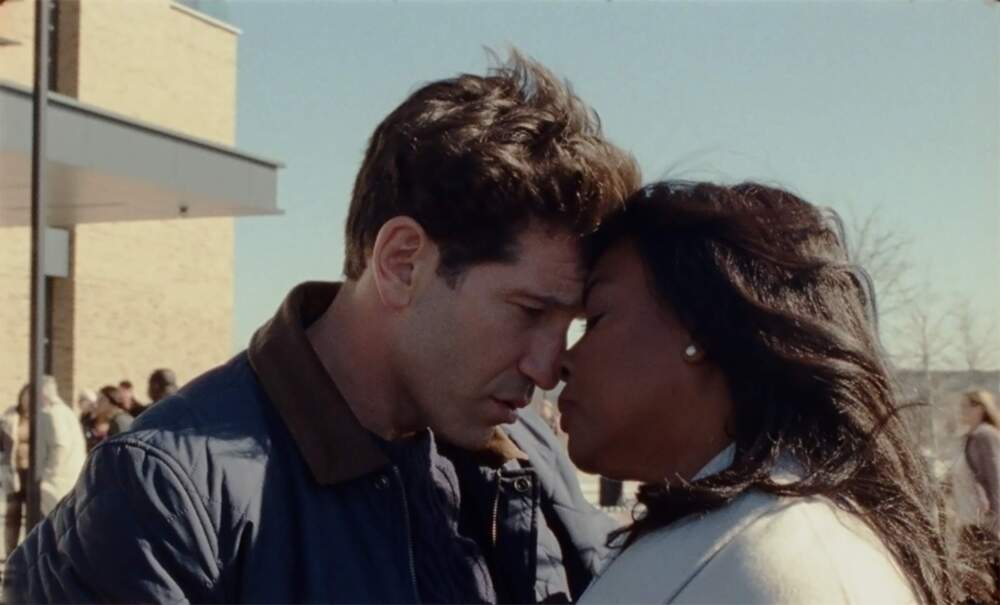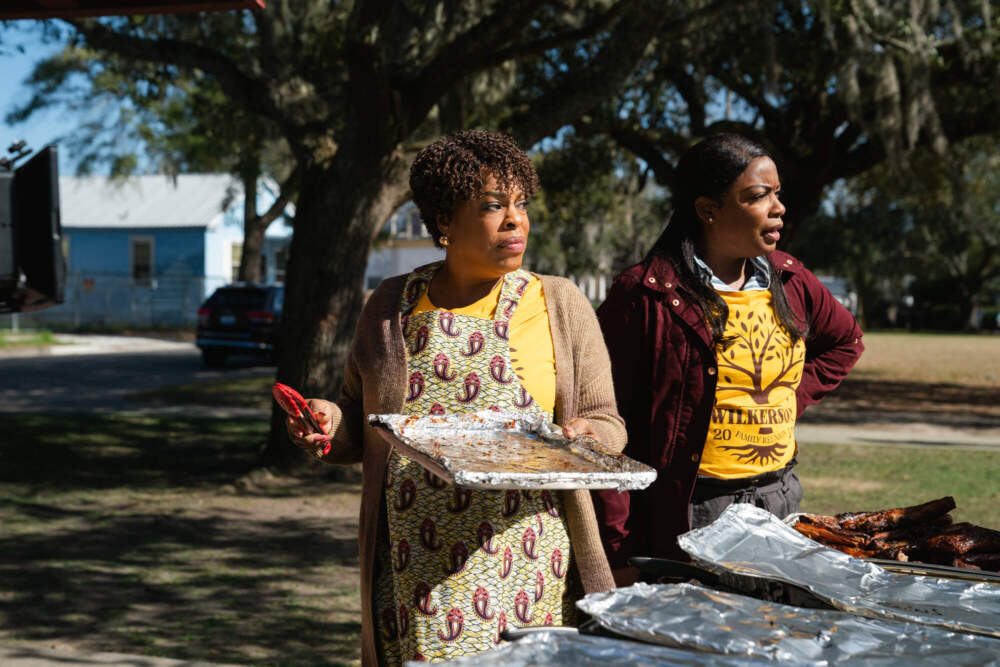Advertisement
Review
Ava DuVernay takes on an unconventional adaptation in new film 'Origin'

Take it from someone sitting here on a deadline: writing is the most miserable, solitary and tedious activity in which a person can take part, with the possible exception of golf. Yet many great movies have been made about writers. Admittedly, most of them depict the authors engaged in the far more cinematic activity of not writing, which is one of the easiest and most fun things you can do. This is why writer-director Ava DuVernay’s unconventional adaptation of Isabel Wilkerson’s 2020 nonfiction bestseller “Caste: The Origins of Our Discontents” has its work cut out for it. The book is a scholarly exploration of social stratification and the history of hate-fueled cultural hierarchies in America, India and Nazi Germany. DuVernay’s film attempts to dramatize not just the ideas behind Wilkerson’s work, but also the process of writing it. “Origin” is about the origin of the book, which isn’t nearly as interesting as what’s on the pages.
DuVernay starts the film off like a detective thriller, opening in 2012 with a queasy teaser out of a “Law & Order” episode, following Trayvon Martin (Tony winner Myles Frost from “MJ The Musical”) in the moments leading up to his murder. We then cut to a gala speaking engagement where Wilkerson — played by Aunjanue Ellis-Taylor — is reading from her 2010 book “The Warmth of Other Suns,” when an old editor pal (Blair Underwood) tries to coax her back to the New York Times to write a piece about the Martin shooting. Wilkerson insists that she only writes books now, and besides, she’s stepping back to spend more time with her family. It’s that old trope of the hero being called out of retirement for one last case, almost endearing in its adherence to genre formula in this unlikely context. Wilkerson’s husband (a cuddly Jon Bernthal) all but begs her to get back on the beat, insisting that in these tumultuous times her voice is needed more than ever. These are some of the last words they’ll ever share.

Wilkerson lost her husband, her mother and a cousin while working on “Caste,” and DuVernay frames the writing of the book as a form of grief therapy. An interesting, if underdeveloped, aspect of the film is the author’s refusal to accept systemic racism as the cause of society’s ills, insisting — with her idyllic interracial marriage as motivation — that there must be something more to explain things like why a Hispanic American vigilante would shoot a Black kid to protect a white neighborhood. Wilkerson’s thesis, which proved controversial in some circles for ignoring capitalism altogether, was perhaps best previously expressed in the chorus of Kris Kristofferson’s 1972 hit “Jesus Was a Capricorn”: “Everybody’s gotta have somebody to look down on/ Who they can feel better than at any time they please.”
It takes a lot of heavy lifting to work Wilkerson’s theories into movie dialogue, and you really feel the strain in unconvincing scenes like Ellis-Taylor explaining the Charlottesville riot to two wealthy, Manhattan book editors who, for the purposes of exposition, are required to act like they have no idea what she’s talking about. We watch the author fly to Germany and India so that people can tell her things she could have looked up in the library. DuVernay tries to goose the drama along by having the aforementioned capitalism argument politely expressed by a prissy blonde lady, positioned as the movie’s villain for pointing out that slavery was a for-profit enterprise and the Holocaust wasn’t. I’m still not sure why this is something to fight over, but there are laugh lines later when Wilkerson’s sassy cousin (played by Niecy Nash-Betts) says how she would have handled that woman.

The most powerful moments of “Origin” are entirely disconnected from the author’s personal struggles, like when an old Martin Luther King Jr. speech about his trip to India and association with the Dalit “untouchable” class is played over shots of contemporary Delhi, or the sickly vision of a Dalit scavenger submerged in a public toilet. One wonders more than once why DuVernay didn’t just make a documentary, like her terrific “13th,” which employed similarly provocative juxtapositions to portray mass incarceration and cheap prison labor as modern day extensions of slavery. The bombshell that Nazi lawyers used American Jim Crow laws as the foundation for legalizing the persecution of Jews is defused here by the film’s goofy dramatization of it, one of many cheesy re-enactments that in grainy 16mm and bargain basement production values give “Origin” the aesthetic of a 1970s educational film. (I was aghast to learn that this movie cost $38 million.)
There are a couple of nifty visual analogues here, like Wilkerson inheriting her mom’s fixer-upper house, which comes to stand for the society in which we were all born. (“You can either try to fix the cracks in the foundation, or you can ignore them while they get worse.”) I quite liked seeing Ellis-Taylor writing out the book’s themes on a whiteboard while rooms are being rebuilt around her. But scenes like her bizarre encounter with a MAGA hat-wearing plumber played by Nick Offerman beggar belief. It’s difficult to feel like we know any of the supporting characters because the majority of them only exist to tell us over and over again how important Isabel Wilkerson is, how the world needs her work, and her voice. Even people on their deathbeds don’t get to talk about anything else except how much this book is going to matter.
DuVernay’s outsized public persona can’t help but intrude a bit upon the proceedings. Much in the way that Christopher Nolan loves making movies about the smartest men in the world who all look and dress like Christopher Nolan, it’s almost impossible not to read the movie’s version of Isabel Wilkerson as stand-in for DuVernay, valiantly persisting with her brilliant project despite the dumb, short-sighted naysayers. The constant affirmations of the author’s ego aren’t just dramatically inert, they also overwhelm any discussion of her ideas, sucking up all the screen time. Forgive me for the spoiler, but in this regard I must mention the film’s gasp-inducing final scene, which features a vision of Trayvon Martin appearing on Wilkerson’s doorstep, smiling and taking down his hoodie in gratitude for her telling his story. Pretty sure that part wasn’t in the book.
“Origin” is now in theaters.
